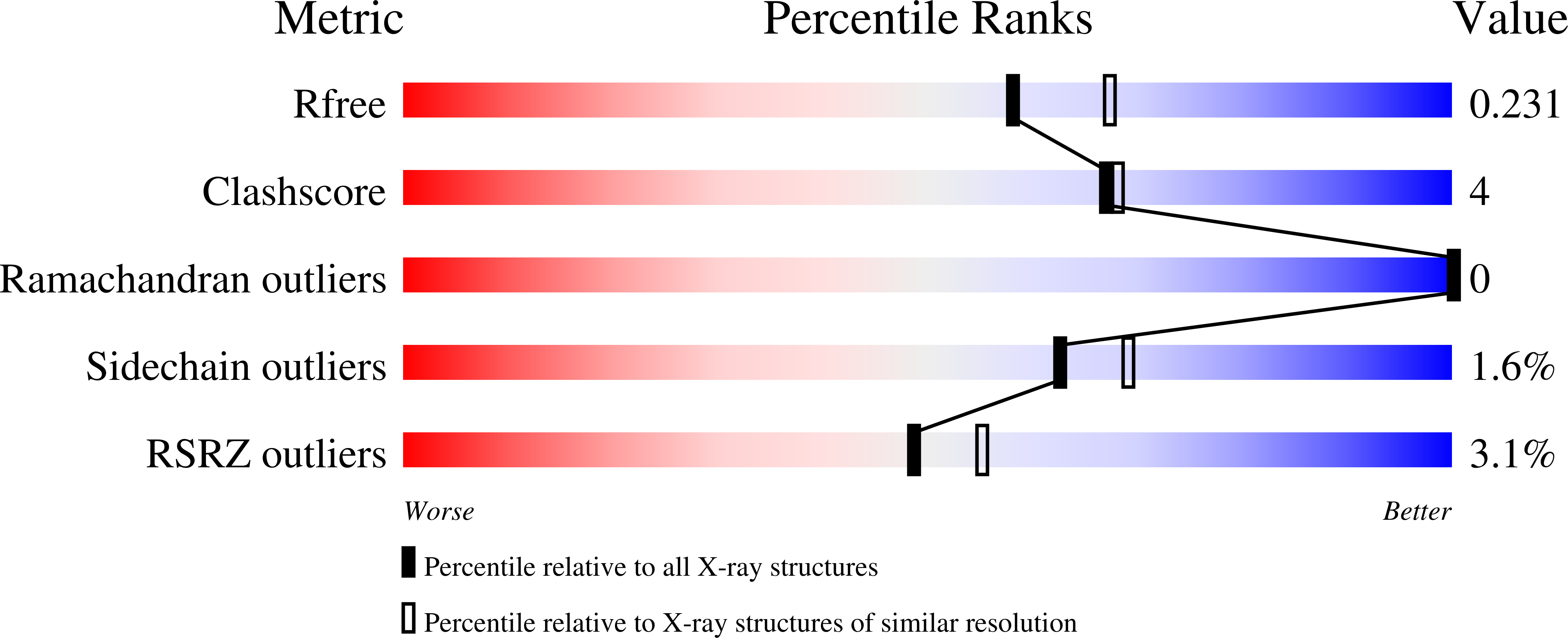Structural basis of fatty acid substrate binding to cyclooxygenase-2.
Vecchio, A.J., Simmons, D.M., Malkowski, M.G.(2010) J Biol Chem 285: 22152-22163
- PubMed: 20463020
- DOI: https://doi.org/10.1074/jbc.M110.119867
- Primary Citation of Related Structures:
3HS5, 3HS6, 3HS7, 3KRK - PubMed Abstract:
The cyclooxygenases (COX-1 and COX-2) are membrane-associated heme-containing homodimers that generate prostaglandin H(2) from arachidonic acid (AA). Although AA is the preferred substrate, other fatty acids are oxygenated by these enzymes with varying efficiencies. We determined the crystal structures of AA, eicosapentaenoic acid (EPA), and docosahexaenoic acid (DHA) bound to Co(3+)-protoporphyrin IX-reconstituted murine COX-2 to 2.1, 2.4, and 2.65 A, respectively. AA, EPA, and docosahexaenoic acid bind in different conformations in each monomer constituting the homodimer in their respective structures such that one monomer exhibits nonproductive binding and the other productive binding of the substrate in the cyclooxygenase channel. The interactions identified between protein and substrate when bound to COX-1 are conserved in our COX-2 structures, with the only notable difference being the lack of interaction of the carboxylate of AA and EPA with the side chain of Arg-120. Leu-531 exhibits a different side chain conformation when the nonproductive and productive binding modes of AA are compared. Unlike COX-1, mutating this residue to Ala, Phe, Pro, or Thr did not result in a significant loss of activity or substrate binding affinity. Determination of the L531F:AA crystal structure resulted in AA binding in the same global conformation in each monomer. We speculate that the mobility of the Leu-531 side chain increases the volume available at the opening of the cyclooxygenase channel and contributes to the observed ability of COX-2 to oxygenate a broad spectrum of fatty acid and fatty ester substrates.
Organizational Affiliation:
Hauptman-Woodward Medical Research Institute, Buffalo, New York 14203, USA.






















